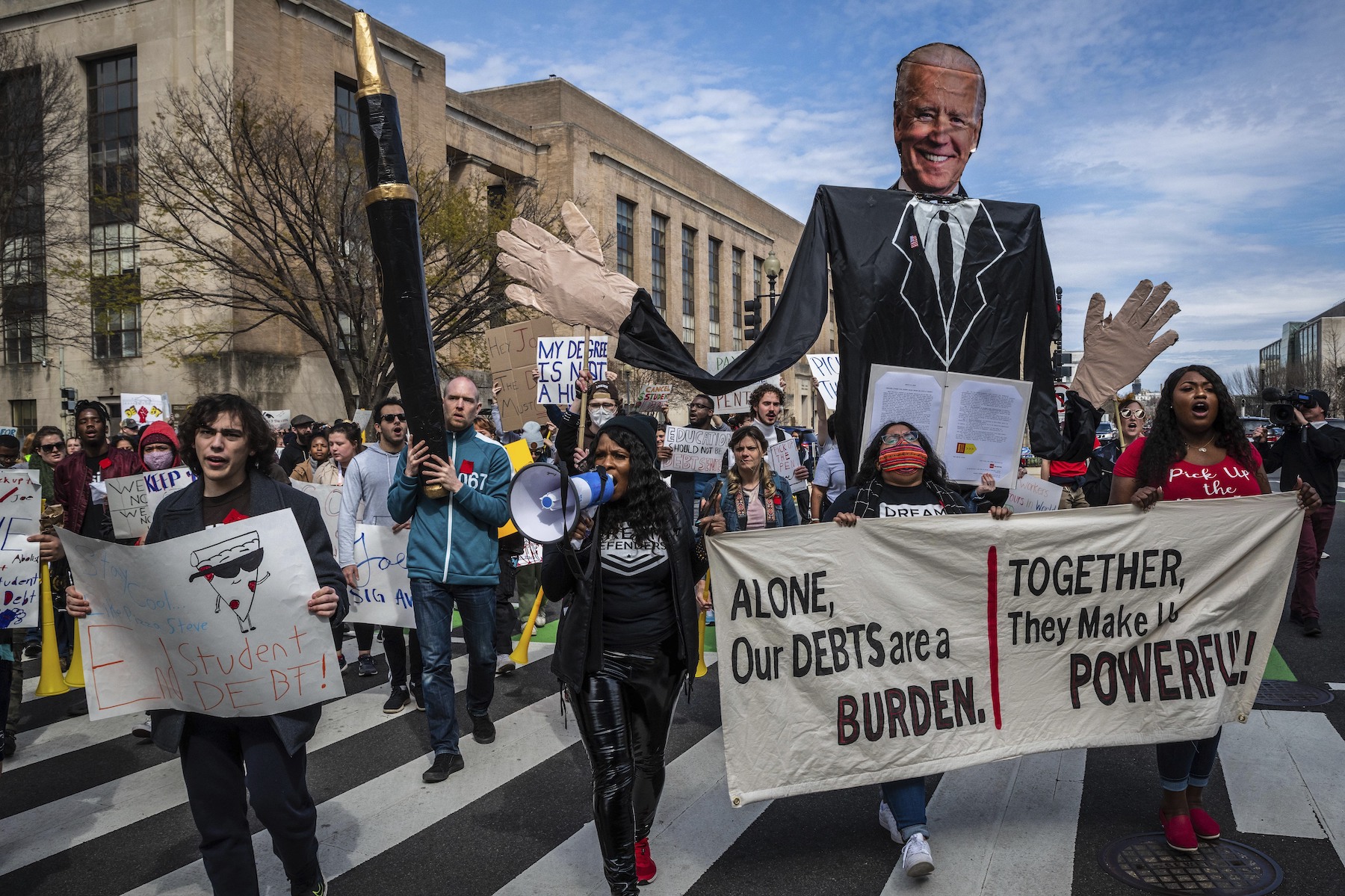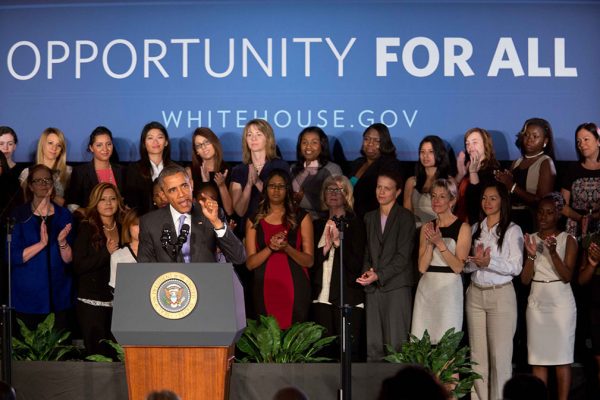The heightened sense of political and ecological crisis in the United States has led to a recent revival of interest in the idea of solidarity. Mie Inouye advances this vital conversation with her insightful reflections on collective action, identity, and how people can work together across their differences.
Compared to discussion of concepts like justice, liberty, and equality, the literature on solidarity is remarkably limited. Part of the challenge writers face is defining the term. Those who have studied the concept have offered a range of useful taxonomies, a tendency that goes all the way back to Emile Durkheim’s opposition between organic and mechanical solidarity. In recent decades, for example, authors have differentiated between factual and normative solidarity; civic, social, and political solidarity; and mundane and sublime solidarity. In our own forthcoming book, we delineate between what we call transformative solidarity and reactionary solidarity.
As we see it, transformative solidarity involves coming together across differences with the explicit goal of creating democratic social change. Transformative solidarity is both political and personal; it shifts both social structures and the individual, altering how we see ourselves, others, and the wider world. In this way, transformative solidarity reaches out to other people and to new and different futures. By contrast, reactionary solidarity turns in, affirming sameness and the status quo. Where the former expands the circle of inclusion, the latter is defined by and reinforces exclusions.
Neither form of solidarity is a purely spontaneous phenomenon. As anyone who has done political work knows, solidarity must be organized into being, often under incredibly difficult conditions. In our society, transformative solidarity is actively undermined and sabotaged at every turn, from the isolating and competitive nature of capitalism to outright criminalization or violent coups, while its reactionary counterpart is encouraged by vitriolic media and other well-funded institutions on the right. We agree with Inouye on the need to intentionally cultivate transformative solidarity through organizing that counteracts these forces of division.
The identity of “worker,” for example, had to be constructed. It was developed over decades during the 1800s, bridging the gaps between various kinds of laborers who didn’t think they had much in common but came to see that they did as trade unions grew and spread. This work is necessarily ongoing: divide-and-conquer strategies pull people apart, and it takes hard work to build institutions that can hold us together. Solidarity must be made and remade and remade again.
Both of us have experience building organizations that nurture solidarity and create new active and politically conscious constituencies. Astra is cofounder of the Debt Collective, the country’s first debtors’ union, which aims to unite multiple kinds of debtors under one big tent. Leah cofounded both the Solidaire Network and Way to Win—donor collaboratives that fund progressive social movements and electoral organizing, respectively. In these contexts, we’ve witnessed and participated in processes of building collective identities and cultivating ideological orientations that emphasize solidarity over private self-interest and that aim at leveraging structural change.
Consider the Debt Collective. Being a debtor has traditionally been frowned upon and seen as a sign of personal and even moral failure. To confront this obstacle to collective action, the Debt Collective has worked to forge a new “we” by encouraging people to reject the stigma and find connection in shared struggle. The recognition that debt is a systemic condition rather than an individual problem can have a transformative impact on people’s self-conception while also opening up new avenues for building working class solidarity and power. As this example suggests, membership organizations play a significant role in the possibility of solidarity—and for democracy as a whole. They have transformative potential because they envelop individuals in new norms and offer them new ways to understand their identities and life circumstances.
For much of the twentieth century, labor unions, neighborhood associations, and other civil society groups—including religious ones, as Inouye recounts—filled this function. But a notable change has taken place: in the wake of attacks on organized labor, coupled with changes to the tax code in the early 1900s, nonprofit organizations—both 501(c)3s, which cannot engage in political activity, and 501(c)4s, which can engage in lobbying—have become an increasingly prominent structure for collaboration. While unions still play a hugely important role—indeed, the recent militancy of the Teamsters, Autoworkers, Writers and Actors guilds, and incipient efforts at Starbucks and Amazon suggest a revitalization of labor may be afoot—nonprofits are the primary legal structures through which solidarity work, or its semblance, now takes place.
We join the chorus of those who have sounded the alarm about this development and about the negative influence of philanthropy on social movements more broadly. Thanks to books like The Revolution Will Not Be Funded (2017) and Anand Giridharadas’s Winners Take All (2018), it is now well understood that donors can abuse their power to influence their grantees, whether consciously or not. By drawing on Leah’s experience, we think another path is possible—not a complete solution, given the vast structural problem, but at least a model for moving from charity or noblesse oblige to solidarity. What we call philanthropy-in-solidarity involves understanding that you aren’t helping other people; you are participating in movements that aim to change our social and political structures and ultimately undermine the very conditions that lead to the undemocratic concentration of wealth and power.
Throughout this work, a crucial question is how people from diverse race and class backgrounds can bring their whole selves to solidarity work and navigate the conflicts that may arise. Like Inouye, we believe that conflict is a necessary and inevitable component of solidarity. Solidarity involves defining a “we” that is differentiated from a “them.” Workers versus bosses is one classic example. But what about conflict within an organization, or within a group that supposedly has a shared purpose? Can individuals with diverse experiences and interests build real and effective solidarity? Can we have debates and disagreements without tearing each other and our organizations down? How can we resist the domination of some over others in solidarity organizations, while also avoiding the deference politics that often seems to be its alternative?
There is no simple or single answer to these questions, but we believe that membership organizations have a key role to play. They enable the group cohesion and the “social endurance” Inouye calls for, both of which are necessary to overcome obstacles, engage in constructive conflict, and process hard conversations, frustrations, and disappointments.
The Debt Collective once again offers an example. After fighting for student debt cancellation for over a decade and successfully pushing President Biden to announce a plan to deliver up to $430 billion in relief, the cause suffered a major blow when the ultraconservative majority on the Supreme Court struck down Biden’s initial plan in June (though other legal avenues remain available to him). This is precisely the kind of backsliding moment when organizations can sink into infighting. The Debt Collective sees its task as communicating a strategy for the fight ahead and providing a forum to help people turn their anger and despair into coordinated action—lest it curdle into cynicism, apathy, or discord.
In this way, membership organizations transform solidarity from a rallying cry to a way of being together. They do so, in part, by promoting a set of virtues that help us become the kinds of people who can manage and navigate conflict constructively—virtues such as justice, forbearance, humility, curiosity, courage, hospitality, and commitment. These virtues can help us speak to each other honestly, even about difficult subjects and feelings, in ways that others are more likely to hear and receive—while also helping us muster the solidarity, strategy, and determination to engage in meaningful conflicts with the systems and decision makers that are damaging our lives and incinerating the future.
As we understand it, then, solidarity is not synonymous with unity, or even with shared identity, ideology, or goals; it names the bonds that enable us to form and exist in community over time. That time will involve hashing out differences and disagreements, messing up and making amends, making progress and losing ground. We should understand solidarity as both a means and an end, our daily practice and our purpose. Solidarity describes the texture of the democratic community we aspire to create, but just as critically, it is our source of power to get there. Without solidarity, we’ll remain divided, which means we’re already conquered.








